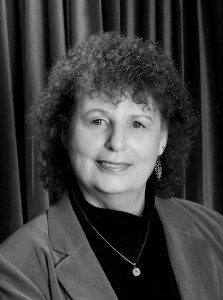Why Should You Write Memoir?
 Much of what I will share here is from my forthcoming book, Writing for Bliss: A Seven-Step Plan for Telling Your Story and Transforming Your Life, which will be released in September 2017.
Much of what I will share here is from my forthcoming book, Writing for Bliss: A Seven-Step Plan for Telling Your Story and Transforming Your Life, which will be released in September 2017.
As the author of two full-length memoirs and many personal essays, as well as being a workshop facilitator for writing for healing, I am often asked why people write memoirs. What I usually tell them is that people write memoirs for a multitude of reasons, but typically, they have a burning need to do so.
The memoirists whom I interviewed for my research claimed that they had a story to tell and felt that they were the only one who could tell it. Others might have secrets to share, or maybe they want to write a memoir to study or understand a situation. Other reasons to write a memoir include to preserve the family’s legacy, learn more about the family, search for personal identity, gain some insight into the past, or heal from a traumatic experience. Writer Andre Aciman believes that people write memoirs because they want a second chance to make another version of their lives. When you write a memoir, you are writing your version of what you think happened from your own perspective. Someone else might have another version, and years and years later your perception of an incident might eventually change.
Once when speaking with writer Maxine Hong Kingston regarding her two published memoirs, she said that her inspiration had stemmed from her reflection about what had happened historically to her family as immigrants and about the ghosts from her Chinese past, particularly regarding her aunt’s suicide after her aunt had been ostracized from the community for having an illegitimate child. The fact that her aunt was born into and then forgotten by the family grated on Kingston’s psyche for many years. While her mother wanted her to communicate her stories with the world, Kingston was told to hold on to the secret about her aunt’s suicide. Kingston wrote The Woman Warrior as a way to explore these conflicting messages.
Memoirist Mark Matousek said that his inspiration for writing his first memoir, Sex Death, Enlightenment (1996), stemmed from his transcendent experience of the realization that his life as a busy writer for a large New York magazine was taking a psychological toll on him. He felt a deep desire and need to slow down his life from the fast track. It was as if a voice inside him gave him this message. Writing the memoir for him was a personal mystical and spiritual exploring, and in the process he found himself transforming.
For her entire life Linda Gray Sexton, daughter of celebrated poet Anne Sexton who committed suicide when she was in her forties, has struggled to come to terms with losing a mother in such a way. Writing her two memoirs, Searching for Memory Street (1994) and Half in Love (2011), has helped her to heal and to reconcile herself to the trauma of her childhood. Writing has also helped her deal with her own emotional demons. In the latter book, she said that writing helped her to come to terms with her mother’s death and to disentangle herself from the strong tentacles that the suicide had attached to her own life. Having a family member who has committed suicide affects your family history in a way that is difficult to shake. Linda Gray Sexton’s writing is powerful, not because she uses the written word as a vehicle to express revenge or anger, but because she uses it as a way to release and come to terms with her own demons.
Many individuals who write memoirs are also the type of people who like posing questions, and this quality suggested a particular personality trait inherent to writers, especially memoirists. Posing questions is inherent to wanting to understand our past experiences.
It’s also important why you should not write a memoir and that is for the purpose of revenge. Revenge does not serve anyone well. In fact, the best revenge is to live a good life. It is also difficult to read a memoir that judges rather than reflects upon the past. Take Frank McCourt’s Angela’s Ashes (1996) for example: he had a horrific childhood; and, after reading his book, you truly feel sorry for him, but you don’t pity him. He wouldn’t have wanted that. Other wonderful and inspiring memoirs are Vivian Gornick’s Fierce Attachments (1987), Lucy Grealy’s Autobiography of a Face (2003), Mary Karr’s The Liar’s Club (2005), Dave Eggers’s A Heartbreaking Work of Staggering Genius (2001), Tobias Wolff’s This Boy’s Life (2000), Townie by Andre Dubus III (2012), and Winter Journal by Paul Aster (2013).
It’s true that if you are writing a memoir which you plan to publish, you should keep in mind that typically readers are drawn to and fascinated by dramatic stories that are fast moving and sensational, but what they are repelled from are self-pity stories or stories written from a “woe is me” point of view. After a while, that perspective becomes tiring for the reader to read. When reading someone else’s memoir, we usually want to be informed or transformed, and they want to know how your experience changed you.
For me, writing my first memoir, Regina’s Closet: Finding My Grandmother’s Secret Journal, about my grandmother who committed suicide when I was ten, has been one of the best experiences of my life, because I got to learn so much about my past that I might not have learned otherwise. My sentiments are similar to those of the poet Pablo Neruda, who says that for him writing is like breathing. Personally, I cannot live without writing, and like many writers, I live to write. This is another reason to write a memoir—to do what I love doing.
Tags: healing, self-awareness, writing









I found your article very impressive and helpful. Every one of us is a book holding on to be composed, and that book, whenever composed, brings about an individual clarified.
Please come and visit my blog.
Hope this will help you too.
Thanks
Byron
Learning from other people’s experiences is something everyone should apply to their lives. It is undeniable how it can positively affect one’s life. Other people’s wisdom and knowledge can bring you inspiration and motivation to be a better person. Through memoirs, you are reminded to be grounded.